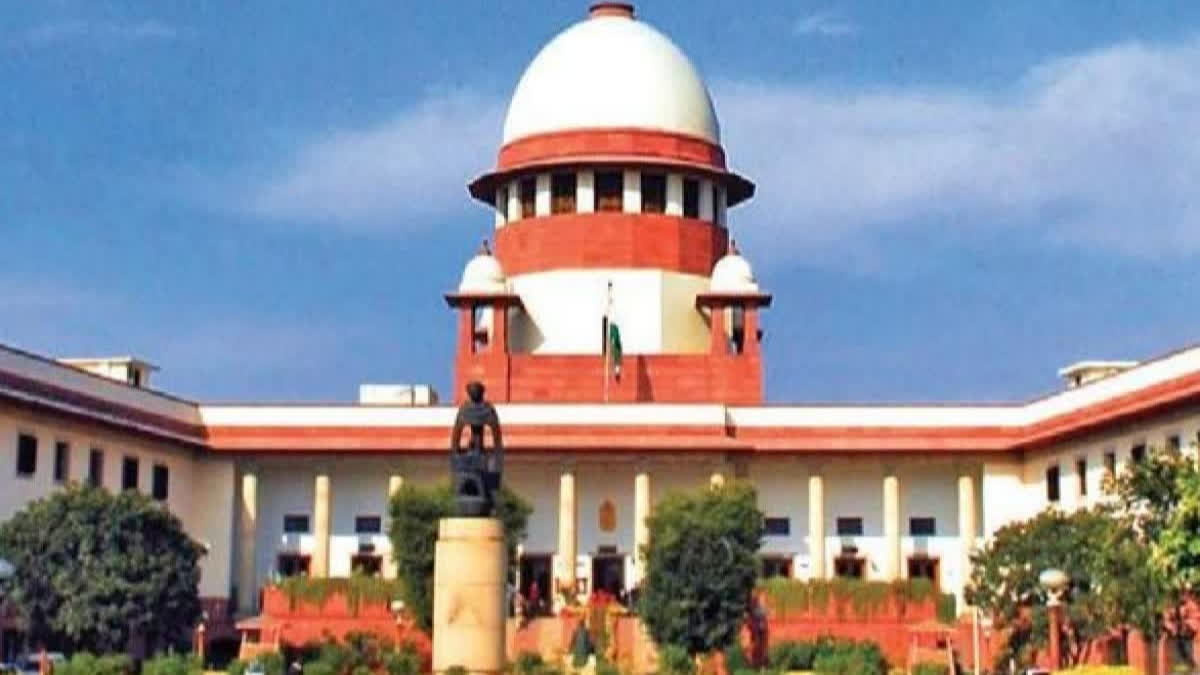New Delhi: The Supreme Court recently overruled the judgement of the trial court and the Jharkhand High Court, which convicted a man for murdering his wife in 1988. After 35 years, the man has been acquitted of a crime that he did not commit. The acquittal order was given by Justice BR Gavai and Justice Sanjay Karol on a plea filed by Guna Mahto, the accused, challenging the Jharkhand High Court order that had affirmed the trial court's decision to grant life imprisonment to Mahto for murdering his wife.
On May 10, 2001, the Daltonganj Trial Court found Guna Mahto guilty of murdering his wife in 1988 under Section 302 of the Indian Penal Code and sentenced him to life imprisonment. It was alleged that he killed his wife and dumped her body in the village's well so that there would be no evidence. Thereafter, it was alleged that he informed the police and told them a fabricated story. After the trial court's order, Mahto approached the Jharkhand High Court which upheld Mahto's conviction despite observing that the investigation officer was not examined by the prosecution.
Also read: Man sentenced to 20 years in prison by Kerala court for sexual assault of minor
The top court observed in its order that "it is a settled principle of criminal jurisprudence that in a case revolving around circumstantial evidence, the prosecution must prove the guilt of the accused beyond a reasonable doubt in the circumstances relied upon must point out only towards one hypothesis, that is, the guilt of the accused alone and none else".
The court observed that in this case investigation officer was not examined and there is no evidence, ocular or documentary, relating to the factum of the accused had caused the disappearance of evidence by giving information to the police to prevent himself from being prosecuted in connection with the murder of his wife. The court observed that the father of the deceased did not state anything against the accused about the crime and the uncle of the deceased also just "expressed his doubt" over the accused killing his wife. The court said that the uncle did not disclose the source of the information. "Non-examination of the Investigating Officer has, in the attending circumstances rendered the prosecution case to be doubtful if not false," observed the court.
"Doubt and suspicion cannot form the basis of guilt of the accused. The circumstances linking the accused to the crime are not proven at all, much less beyond a reasonable doubt....we may reiterate that suspicion howsoever grave it may be, remains only a doubtful pigment in the story canvassed by the prosecution for establishing its case beyond any reasonable doubt," observed the court.
"In the normal course of proceedings, this court does not interfere with the concurrent finding of facts reached by both the courts below. It is only in exceptional cases where we find the concurrent findings to be absurd, leading to the travesty of justice, it is our duty to rectify miscarriage of justice," observed the court. The court observed that the courts erred in convicting Mahto based on the incorrect and incomplete appreciation of evidence causing serious prejudice to Mahto. The court set aside the orders of the trial and the High Court.



